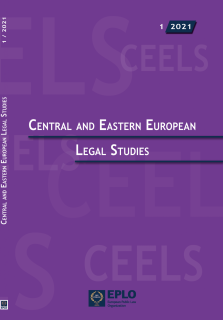
Informal Constitutional Amendments
in Liberal and Illiberal Constitutionalism:
The Case of Hungary and Poland
Ph.D., Dr. Habil., DSc (Doctor of the Hungarian Academy of Sciences),
ORCID 0000-0002-7657-3572,
Visiting professor at the Federal University of Minas Gerais, Faculty of Law, Belo Horizonte, Brazil
Ph.D., Dr. Habil., ORCID 0000-0002-9559-3130,
Associate Professor at Nicolaus Copernicus University in Toruń, Faculty of Law and Administration,
Constitutional Law Department, Poland
Drawing on the works on comparative constitutional change and the Hungarian and Polish experiences from 1990, we argue that, even in illiberal constitutionalism, informal constitutional amendments agreed by the constituted powers lead to a legitimate and even desirable change to the constitutional system – from the perspective of the actual illiberal regime. It is proposed in this paper that this process is informed by illiberalism. More actors are involved in the formation of informal constitutional amendments as compared to the previous liberal era. The leading role of the political branch, as the engine of the informal change, is enhanced, which also alters the role of constitutional courts. These courts are used, impliedly instructed, or they just instinctively contribute to the preparation, making and justifying of illiberal constitutional changes. The content of the result of this process detaches itself from the minimum standards of substantive constitutional democracy.
*The research is supported by the National Science Centre, Poland (2018/29/B/HS5/00232, ‘Illiberal constitutionalism in Poland and Hungary’). This text forms the basis of a part of a chapter from: Illiberal Constitutionalism in Poland and Hungary: The Deterioration of Democracy, Misuse of Human Rights and Abuse of the Rule of Law, by Tímea Drinóczi and Agnieszka Bién-Kacała, © 2022 by Routledge. Reproduced by permission of Taylor & Francis Group. This paper was finalized in May 2021.



















